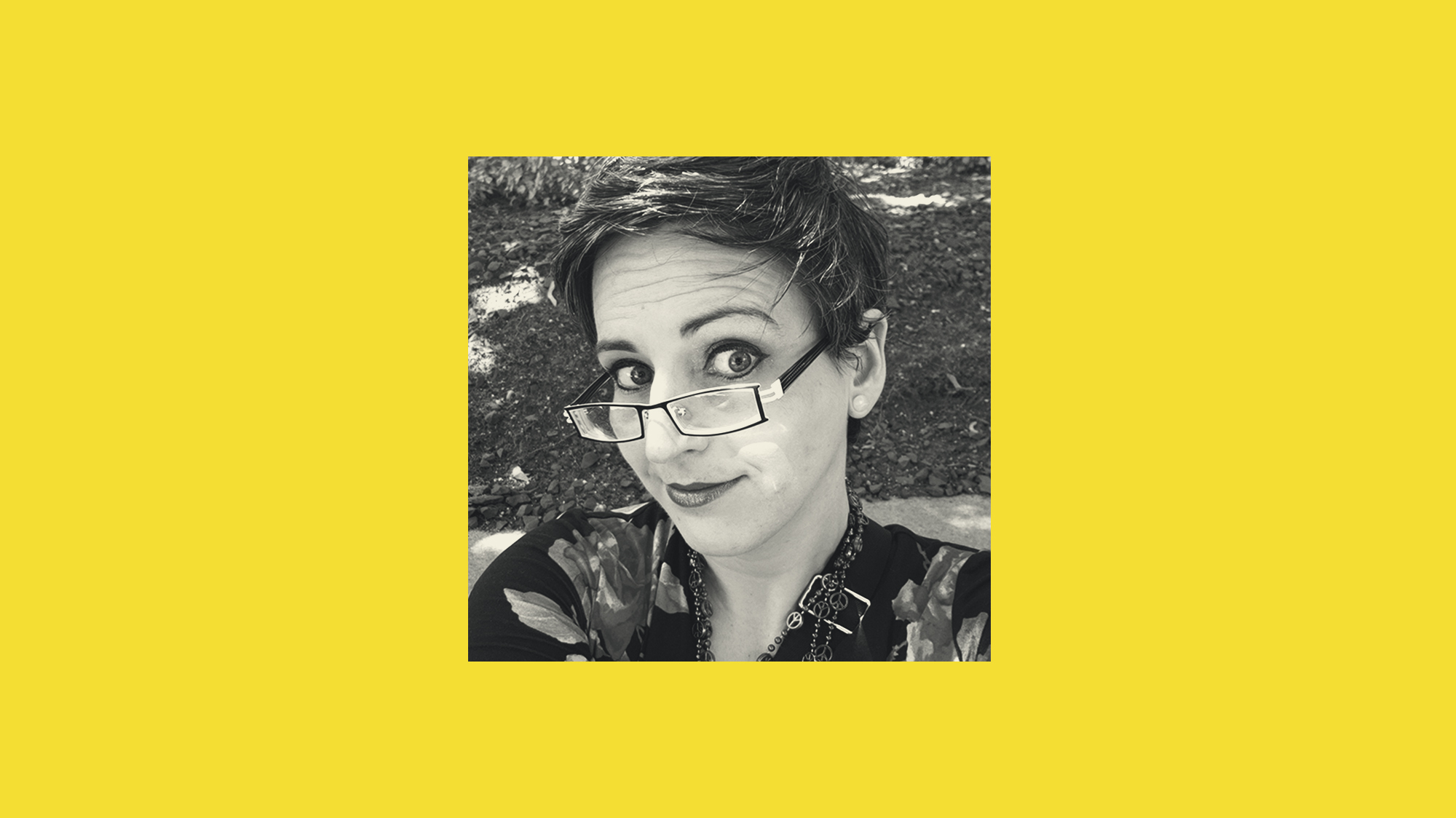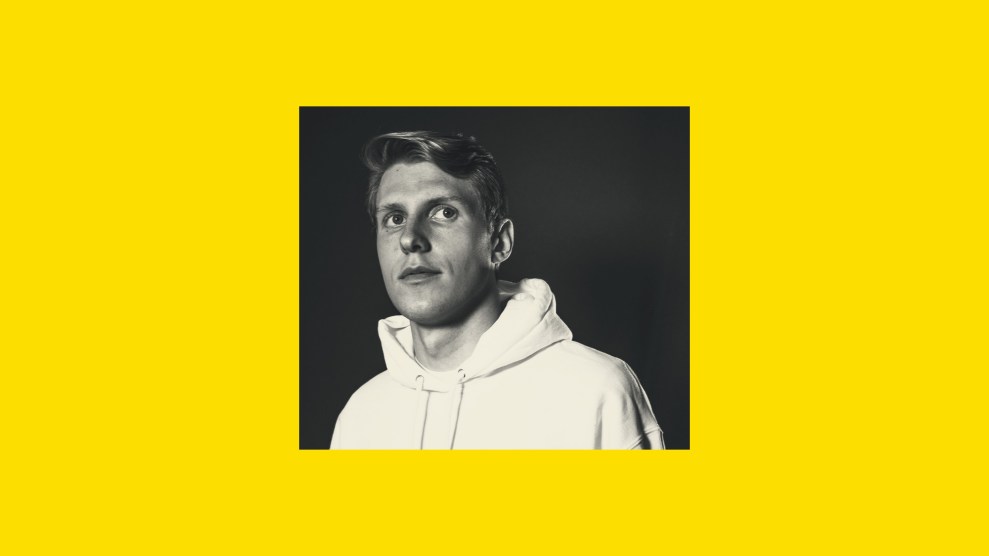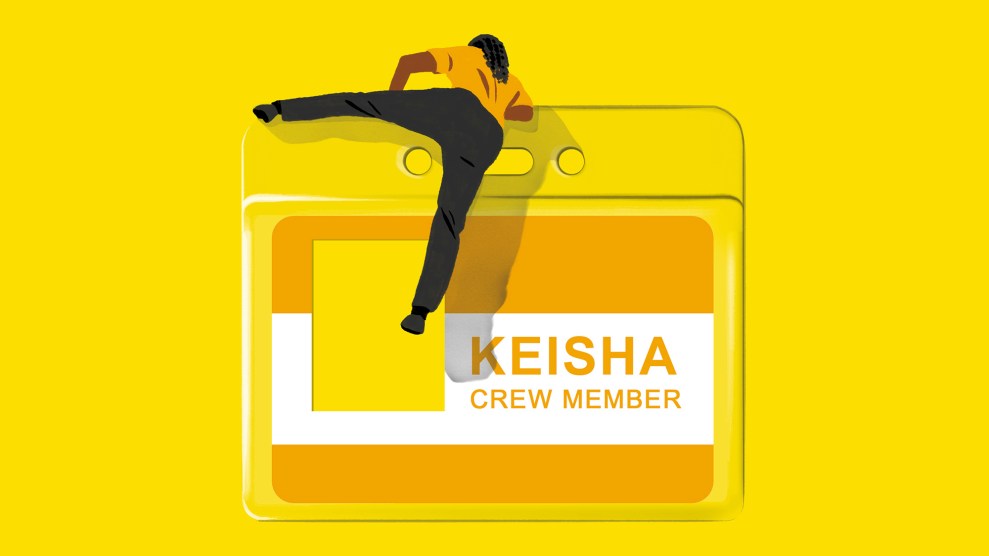Allison Mulattieri, 38
Position: Cashier, TJX Marshalls Retail
Started: December 2004
Quit: July 2020
Salary: $12.00 per hour, approximately $20,000 per year (started at $8.50 per hour)
As told to Will Peischel
I worked at Marshalls in Boston, where I live, as a cashier for about 15 years.
In the middle of March everything really started closing down. We had a couple of months of paid furlough. We were all at home. The store was entirely closed. Then, around May they started getting ready to reopen.
Things were still pretty crazy in terms of the pandemic. As soon as the city allowed people to go back though, Marshalls then set a hard date for the reopening. I believe it was June 11. After 30 days without taking shifts, I’d be considered a non-return, and automatically punted.
I wanted to extend my leave a little more, so I wouldn’t have to come back immediately. I wanted to wait until the beginning of the fall. I was allowed, by store benefit, up to 60 days of announced leave. According to benefits, I had it.
I spoke to a manager. They said, “You have to file through the online portal that you’ve been checking in with us this whole time.” So, I filed through that. Two weeks later, when I spoke to a separate manager, they said that this wasn’t even the right way to go about it. I had to talk to the company HR directly.
They were putting me through this rigmarole to see if I was willing to come back—because if I wasn’t they’d find somebody else. I felt like they had boxed me into that decision. Basically, I was given a fake task to keep me satisfied—or give me the illusion of doing something—until it became a make or break situation where I had to say, “I’m coming back now,” or “I’m quitting.” It was like they only told me then, after the furlough, I got the answer: “We won’t certify this leave.”
I finally got fed up and said, “I’m not coming back.”
After I gave my resignation, I was penduluming between relief but also a kind of guilt. On the one hand, I was relieved that I was able to make this choice and ensure my own safety. But at the same time, I felt this terrible guilt. You’re doing this after 15 years, you’re giving up this job you were doing. You have other coworkers in that job coming back. What makes you better than them?
I saw one of my coworkers on the train as I was going somewhere. I don’t know if she didn’t recognize me or didn’t want to talk to me. I wonder if they feel like I’ve abandoned them. I’d worked there for 15 years, and I’d kind of gotten used to it as much as you can. It did feel a lot like Stockholm syndrome. Am I going into a situation full of even more unknowns than the one I’m leaving?
Right now, I’m trying to figure out what I’m going to do. On the good days when I’m able to calm down the guilt and anxiety, I feel like this is kind of liberating because I’ve been doing some things I’ve always wanted to do. I’ve been trying to learn Japanese through Duolingo and those online learning programs, and now I have a chance to really focus on it even more because my mental load isn’t as taxed.
And, there’s more time to work on my art. I’ve been a fan of Japanese animation since high school. About the time that I started my job of 15 years, I was also taken as a volunteer for Boston’s anime convention, Anime Boston. I liked to illustrate and draw comics in my free time, and I showed them some examples of my work. They asked me to start drawing designs for them. Could you draw pictures of our convection mascots? Could you provide designs for merchandise we have for the convention? We have branded tumblers, keychains, patches, and pins. They really like the look that I did for patches and pins, and I’ve been doing a patch and collectible pin design for them every single year. That’s been my main legacy from working for them.
I was thinking, if there was a way I could turn this art I do for free into something more self-supporting, could I become a freelance artist because I have the time to support myself? As per my anxiety and my guilty personality, I never really felt I was good enough to make a job out of the art I’d do online or for this convention. If the convention has had me for 15 years, maybe what I produce as an artist is good enough to start charging?
I really have to keep telling myself things aren’t over just yet. Maybe it’s time to look at something more—what I want—than what I just need to get by.

















